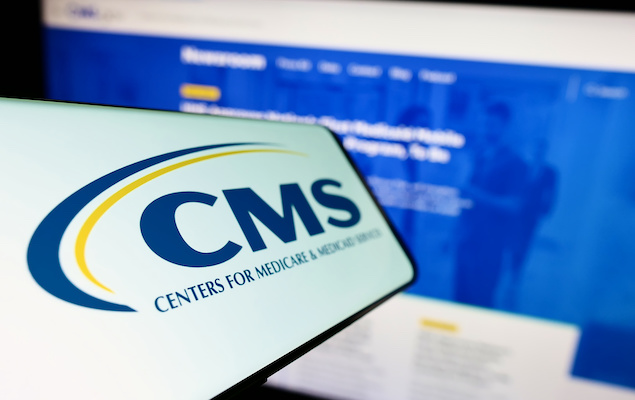ADA says improved data exchange benefits dentists, patients
Association submits comments responding to CMS request for information

The ADA is highlighting the benefits of improved data exchange for dentists and patients, sharing support for improved dental-medical interoperability, and addressing barriers faced by dental providers in adopting and implementing electronic health records, prescription drug monitoring tools and standards-based application programming interfaces.
In response to the Centers for Medicare & Medicaid Services’ “Health Technology Ecosystem Request for Information,” the Association wrote a June 16 letter highlighting the benefits of improved data exchange for dentists and patients. The ADA highlighted that comprehensive dental records and data exchange supports continuity over time, improving diagnosis and tracking of conditions.
It also highlighted that removing barriers to exchange lower costs and reducing treatment delays, which benefits patients and providers; integrated access to prescription drug monitoring programs will streamline controlled substance checks and support safer prescribing habits; adoption of standard application programming interfaces and electronic transactions will reduce time spent on manual processes; and interoperable systems would allow dentists to provide safer and more effective care to patients.
The letter emphasized the unique considerations for dental data and software vendors when it comes to interoperability, which facilitates the exchange of information between providers, their patients and payers.
The letter highlighted ways for CMS to support better integration of oral health into the broader health IT landscape.
“The ADA comments ask that to achieve the objective of optimal health, which includes oral health, meeting dental providers and practices where they are and supporting them to ensure meaningful participation in the health care system is essential,” said the letter, which was signed by ADA President Brett Kessler, D.D.S., and Interim Executive Director Elizabeth Shapiro, D.D.S., J.D.
In the letter, Drs. Kessler and Shapiro commented on the dental health information technology ecosystem, including on dental-specific data considerations, dental imaging and e-prescribing and prescription drug monitoring programs.
The ADA leaders encouraged federal agencies “to develop a roadmap for the interstate exchange of ePrescribing and [Prescription Drug Monitoring Programs] reporting and to ensure that prescription information is easily accessible to authorized entities.”
“Specifically, we ask that CMS support integration of dental software systems into [Prescription Drug Monitoring Programs] databases similar to medical systems,” they said.
The letter also commented on specific questions in CMS’ request for information, including for patients and caregivers; providers; payers; and technology vendors, data providers, and networks.
Dental records’ interoperability and data accessibility for patients and caregivers in dentistry are more limited than those for medical health information, according to the ADA, with these gaps becoming clearer when medical treatment is linked to dental treatment. The letter noted that estimates suggest that poor communication and referral capacity between emergency and dental systems cost the U.S. health care system more than $3.5 billion annually.
“Despite millions of Americans seeking care in emergency departments for dental conditions each year, a lack of interoperability between hospital and dental systems results in costly, fragmented and ineffective care. Without seamless referral pathways or shared health records, most patients receive only temporary relief,” the ADA said. “This disconnect leads to repeat visits, avoidable complications, and billions in unnecessary spending.”
In response to a CMS question on opportunities and advancement that could emerge with application programming interfaces providing access to patients’ electronic health information, the ADA said it is an American National Standards Institute-accredited standards developer, setting standards for nearly every tool of dentistry.
This in an effort to ensure each tool’s safety, reliability and efficacy for dentists and the public, according to the Association, and the ADA Standards Program “is leading efforts to develop ADA standards on data content such that any current or future exchange mechanisms such as [application programming interfaces] technology can support exchange of required data to serve dental patients.”
“The ADA encourages CMS and its federal partners to engage patients, providers and industry partners to establish operational best practices for identity management, disclosures and data stewardship. As data exchange expectations expand, domain-specific information should rely on key stakeholders like the [American National Standards Institute] accredited ADA Standards Program to ensure that data exchange requirements are appropriate and feasible for the specific use case.”



